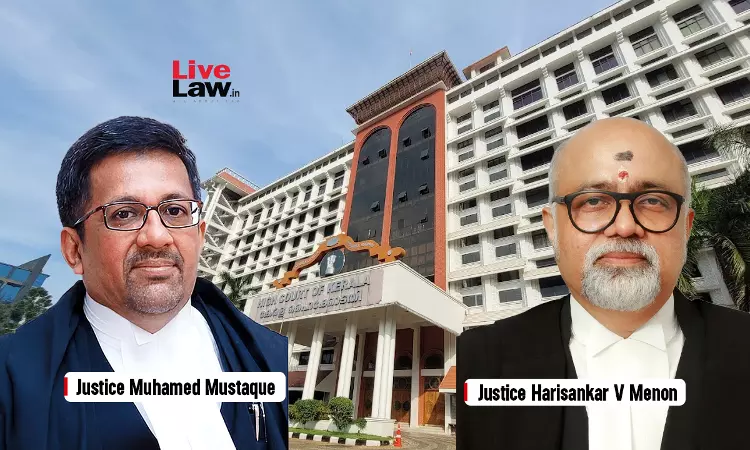- Home
- /
- High Courts
- /
- Kerala High Court
- /
- National Highways Act | Only...
National Highways Act | Only Disputes Which Cannot Be Decided By Competent Authority May Be Referred To Civil Court U/S 3H(4): Kerala HC
K. Salma Jennath
16 Sept 2025 9:00 PM IST
The Kerala High Court has recently clarified the meaning of the word 'dispute' falling under Section 3H(4) of the National Highways Act, 1956. The court was considering the nature of disputes that must be referred to a civil court by the Competent Authority under the NH Act.As per Section 3H(4), two types of disputes have to be referred to the civil court: disputes as to the apportionment...
The Kerala High Court has recently clarified the meaning of the word 'dispute' falling under Section 3H(4) of the National Highways Act, 1956. The court was considering the nature of disputes that must be referred to a civil court by the Competent Authority under the NH Act.
As per Section 3H(4), two types of disputes have to be referred to the civil court: disputes as to the apportionment of amount and, disputes as to the person to whom compensation is payable.
The Division Bench comprising Justice A. Muhamed Mustaque and Justice Harisankar V. Menon observed that disputes that are to be referred to the civil court are only those which the competent authority cannot itself decide without adjudication.
It clarified: "It can be concluded that disputes qualified for reference would arise only in circumstances where the competent authority cannot, by itself and without the aid of the adjudication process, decide on the title or interest of the party or the claimant. However, in circumstances where the title deed or any other document relied on by the claimant is complete and valid on its face, the competent authority is not expected to refer such a dispute to the civil court, even though the dispute has arisen by challenging the title deed or document relied on by the claimant...However, the mere fact that a party raises a challenge to such a document does not oblige the competent authority to refer to the civil court. Unless and until the document is impeached in proceedings before a competent civil court, it continues to remain valid and binding for the competent authority to act upon."
The Court also addressed the question of remedy available to a third party who may want to challenge it.
It stated that such a person has to approach the civil court independently, and the proceedings would be independent of the provisions of the NH Act.
In situations where such independent proceedings are barred by limitation, these persons cannot circumvent the limitation law by trying to seek reference from the competent authority.
Background
The appeal was preferred by the writ petitioner who claimed that he was entitled to the compensation for the land acquired by the NHAI and stated that his father had transferred the property while he was a minor without obtaining permission from the civil court. The single judge had dismissed the petition stating that it cannot be challenged since the dispute was barred by limitation. However, the Division Bench opined that the question that ought to have been considered was whether the dispute was one which needed to be referred to a civil court.
The Division Bench felt that since there was no error in acknowledging the said title deed and disbursing the compensation, there was no need to refer the dispute raised by the appellant to civil court, and that he has to institute a separate civil proceeding challenging the deed.
Thus, the Court disposed of the appeal giving liberty to the appellant to institute a civil case subject to the law of limitation. It further clarified that the question of limitation is to be decided by the civil court and set aside the observations made by the single judge regarding the same.
Case No: WA No. 2098 of 2025
Case Title: Saravanabhava v. The District Collector and Ors.
Citation: 2025 LiveLaw (Ker) 572
Counsel for the appellant: P.K. Sreevalsakrishnan, K.R. Prathish, S. Unnikrishnan (Nellad), Krishna Das, Akhil Babu
Counsel for the respondents: Mathews K.Philip - SC - NHAI, Philip T.Varghese, Thomas T. Varghese, Achu Subha Abraham, V.T. Litha, K.R. Monisha, T.K. Shajahan - Sr. Government Pleader



